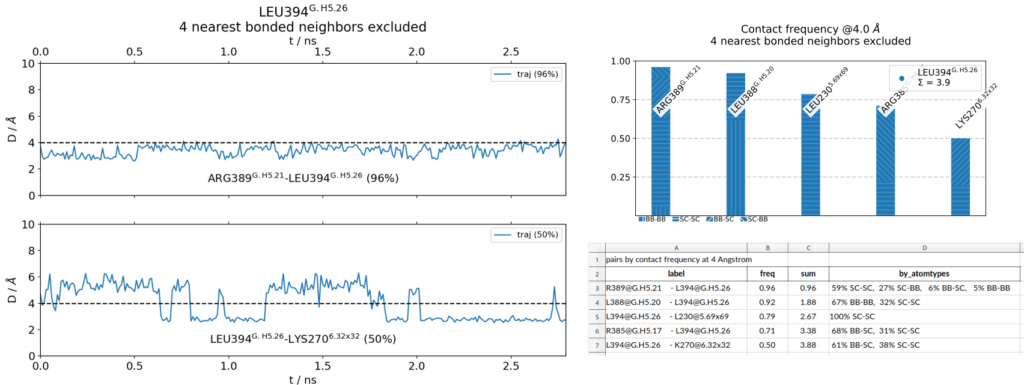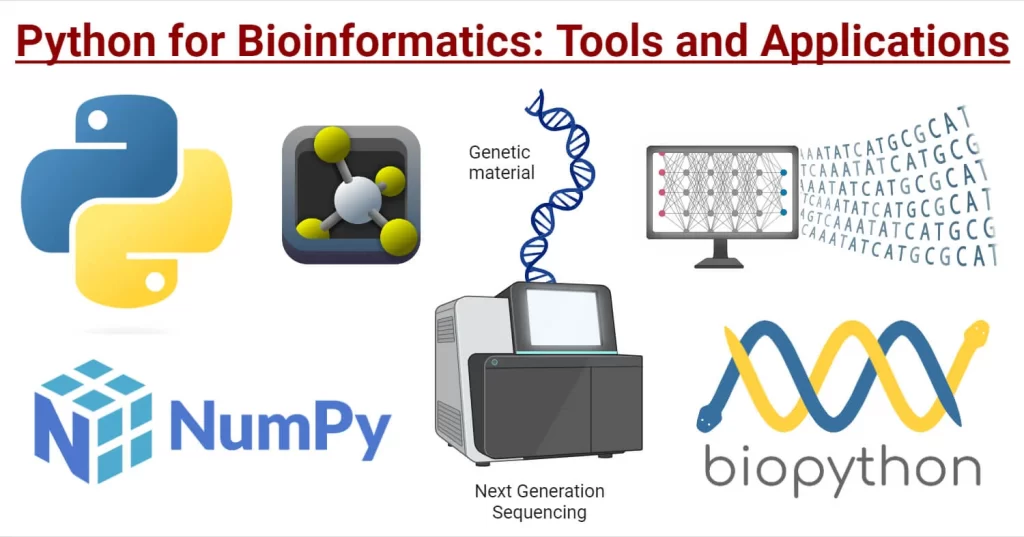Molecular Dynamics (MD) simulations are a critical tool in computational chemistry and biophysics, enabling researchers to investigate the molecular motion of biological systems, materials, and drug interactions. As Python Libraries for MD simulation have become more accessible due to advances in computing power and software, MD simulation using Python has emerged as a popular approach due to Python’s simplicity, versatility, and powerful scientific libraries.
This article explores some of the most efficient Python libraries that streamline the process of running with the help of python libraries for MD simulation, from setting up systems to analyzing simulation results. By leveraging the power of these libraries, researchers can build efficient workflows for simulations without needing extensive programming knowledge.

Why Python Libraries for MD Simulations?
Python is an intuitive and flexible programming language that offers several advantages using python libraries for MD simulations:
- Ease of Use: Python’s clean syntax allows users to quickly set up and run simulations without needing to learn low-level programming languages.
- Extensive Libraries: A rich ecosystem of libraries allows for seamless integration with molecular dynamics engines, simplifying the simulation workflow.
- Data Analysis: Python’s scientific computing capabilities make it ideal for analyzing simulation results, offering a wide range of tools for plotting, statistics, and machine learning.
With the help of various Python libraries, researchers can focus more on the science behind molecular simulations and less on the technical complexity of the computations.

Key Python Libraries for Efficient MD Simulations
Let’s explore some of the most efficient and widely used Python libraries for MD simulation using Python.
1. OpenMM: A Flexible Toolkit for MD Simulations
OpenMM is one of the most powerful and flexible MD simulation libraries available in Python. It offers a user-friendly API that integrates seamlessly with Python, making it an excellent choice for both beginners and experienced researchers.
Key Features:
- Python API: OpenMM’s Python API allows users to easily define and run simulations directly from Python scripts.
- GPU Acceleration: It supports GPU acceleration, making simulations much faster by leveraging modern hardware.
- Custom Forces and Integrators: Users can define custom force fields and integrate different algorithms to optimize their simulations for specific use cases.
- Extensive Force Field Support: OpenMM provides built-in force fields such as AMBER, CHARMM, and more, enabling users to easily apply force fields to their molecular systems.
2. MDAnalysis: Streamlining Trajectory Analysis
Python libraries for MD Analysis is a powerful tool that simplifies the analysis of MD trajectories. It allows users to analyze trajectories from various molecular dynamics engines, including GROMACS, CHARMM, NAMD, and LAMMPS, making it a versatile tool for post-simulation data analysis.
Key Features:
- Cross-Format Compatibility: MDAnalysis supports a variety of file formats such as PDB, XTC, DCD, and more, allowing researchers to work with data from different MD engines.
- Intuitive API: The Pythonic interface makes it easy to load, manipulate, and analyze trajectory data.
- Analysis Tools: It provides a suite of built-in functions for computing properties like distances, angles, dihedral angles, hydrogen bonds, and root mean square deviation (RMSD).
3. PyEMMA: Markov Models for Enhanced MD Analysis
PyEMMA (Python library for EMMA – Estimation of Markov Models) is a Python package that enables advanced analysis of molecular dynamics simulations through Markov state models (MSMs). These models help identify metastable states in molecular systems and provide a statistical framework for analyzing the long-term behavior of complex systems.
Key Features:
- MSM Construction: PyEMMA allows researchers to construct Markov state models from MD simulation data.
- Dimensionality Reduction: It integrates with techniques like principal component analysis (PCA) and time-lagged independent component analysis (TICA) for efficient dimensionality reduction of large datasets.
- Kinetics and Thermodynamics: The library offers tools to compute thermodynamic and kinetic properties of molecular systems.
4. ASE: Atomic Simulation Environment for Versatile Simulations
ASE (Atomic Simulation Environment) is a Python library that provides a unified interface for setting up, managing, and analyzing molecular dynamics simulations. ASE supports a wide variety of simulation engines, including LAMMPS, GROMACS, and Quantum ESPRESSO.
Key Features:
- Multi-Engine Integration: ASE works with multiple MD engines, making it highly versatile for different types of simulations.
- Modular Design: Users can set up simulation workflows using ASE’s modular and intuitive framework.
- Integration with Quantum Calculations: ASE is also useful for performing simulations that involve quantum mechanics and molecular mechanics (QM/MM) methods.

Conclusion
Python’s flexibility and the availability of powerful libraries like OpenMM, MDAnalysis, PyEMMA, and ASE have made MD simulation using Python a go-to approach for researchers worldwide. These libraries allow users to set up simulations, analyze data, and perform advanced modeling without needing extensive programming knowledge or expertise in specialized simulation engines.
As we use Python Libraries for MD simulation, it continue to play a crucial role in scientific discovery, these Python libraries will remain central to simplifying workflows, enhancing reproducibility, and accelerating research in molecular dynamics. Whether you’re new to the field or an experienced researcher, incorporating these tools into your workflow can significantly improve the efficiency of your MD simulations.
If you want to explore more about applications of Running MD Simulation using Python you can join us in Bengaluru for an exciting 1 Day Training. More information is available HERE
